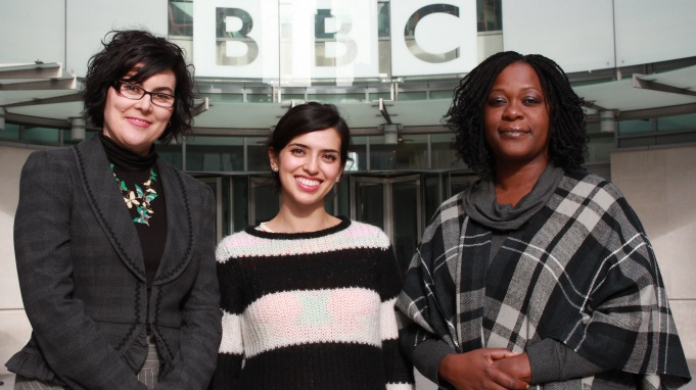The International Radio Playwriting Competition is open for entries for the 25th time. Judge Neil Webb, Director Theatre and Dance at the British Council, tells us what he’s hoping for.
International Radio Playwriting Competition
In terms of radio as a medium, one of the things that’s great about it is that you never know what you’re going to get. One of the winners last year was someone who’d never written a play before. If you’ve got something you passionately want to say, then give it a go. I’ve read quite a lot of scripts in the past few years, and what really grabs me is when I get an insight into another world, another culture, another society. With any piece of writing, or theatre or any story, it’s most effective when it’s coming from within a person. Plays have ranged from being quite out there, almost science fiction, to more domestic and recognisable.
For a lot of people around the world, the BBC World Service is an international connection – it makes that link between people and allows people to connect who might never have thought about writing, or who wouldn’t think about what they do as theatre. Similarly, at the British Council our own networks allow us to talk to lots of people, through our education work, our language-teaching work – it gives us access to a much wider group of people, outside an arts context. In the last few competitions, we’ve worked with more partners – Commonwealth Writers and the Open University – who can also help us reach new people.
"One of the winners last year was someone who’d never written a play before."
The competition has encouraged people to write plays who wouldn’t have considered themselves to be playwrights before. Perhaps that’s to do with the accessibility of radio… if you’re used to listening to stories and voices from other places, it becomes part of a wider culture, part of your life. Sometimes, actually going to the theatre is a bigger step than turning on the radio.
To write something and then see it brought to life in a professional studio with professional actors is thrilling for the winners. There are two prizes – one for a play written by someone with English as a first language, and one for a play written by someone with English as a second language. There’s also a newer prize, for the piece with the most potential. That hopefully means that it’s a competition that feels open and accessible. The entries are such a mixed bag – we had 86 countries represented last year.
"The competition has encouraged people to write plays who wouldn’t have considered themselves to be playwrights before."
First and foremost, I’m looking for an engaging story – something that makes me want to keep reading! I’ve learned a lot about what might work on radio, and that’s a consideration. It’s got to be a story that can be told on the radio. I’m trying to read the scripts and think about how they would work, as well as all the usual considerations around drama – is it too narrative, is there enough dialogue, is there enough action? But there are lots of ways to do that, there’s no one ‘correct’ way.
Hearing the play you’ve read in your head brought to life on the radio is pretty special, so it must be magical for the writers themselves! There’s a whole body of tips from writers for entrants, too, so people should read those and pick up some advice. I’d say write from the heart, write a story you’re passionate about, keep it simple and succinct. I want to read something compelling. If you’ve got a story that you’re burning to share, then please share it!
The 25th International Playwriting Competition is brought to you by the British Council and the BBC World Service, in partnership with Commonwealth Writers and co-produced by the Open University. The competition is open until 31 January 2016. For more details visit the BBC website, and follow the #BBCPlay hashtag for more tips!
Neil Webb was talking to Eleanor Turney.
